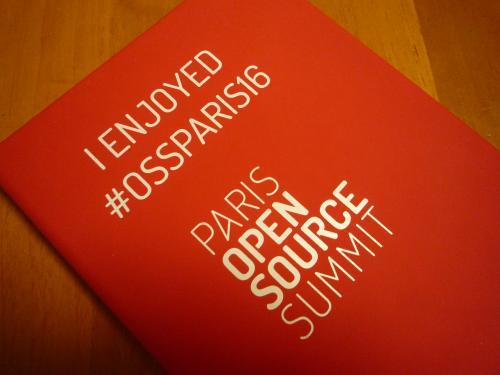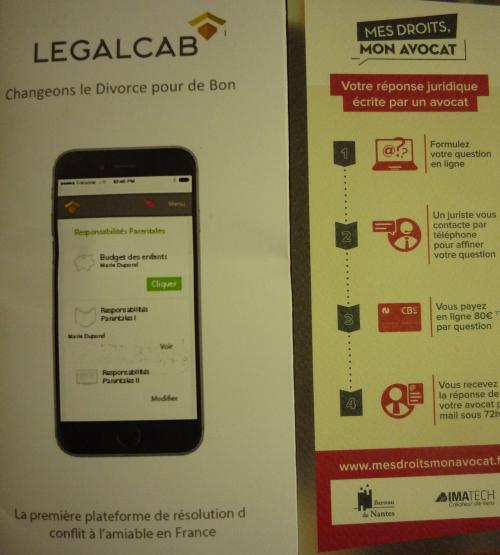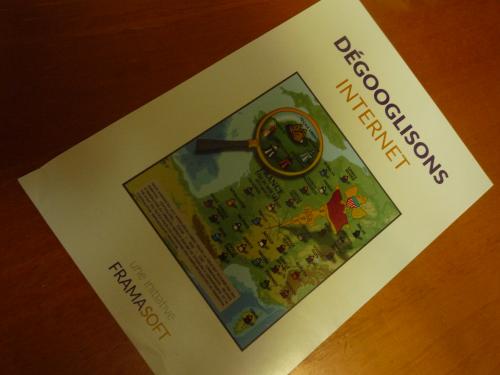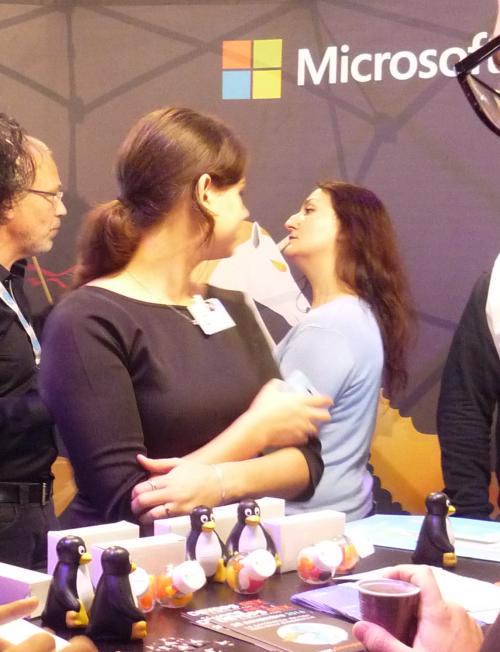POSS 2016, from Open Hardware to "Open divorce" (*) and formats

I enjoyed POSS2016 in Paris
</em></u>
Last week, I presented the current status of the EU-funded research I am working on these days, that is DiDIY (Digital DIY), at the Paris Open Source Summit. I have already reported about that side of the conference on the DiDIY blog, but I found many more interesting things at POSS 2016.
What I heard at POSS 2016 about OpenDocument and Free Software in Public administration is so important, in my opinion, that I put it into a separate post. Besides those issues, the most interesting news (for me, at least) were…
Law and (divorce) lawyers meeting Open Source, Open Standards

Call an Open Source lawyer!
</em></u>
I was impressed by the size and variety of the “legal tech” area of POSS 2016, as well as by its long term implications. Open Law, “Village de la Justice”, Legascope, “My Rights, My Lawyer” and lots of other projects and services, all based in one way or another Open Source, or at least Open Standards, and so far, so good. In general, though, I have a strong feeling that we as a society have not thought through yet the real, long term impacts of some of this stuff. Not at all:

I’m not just thinking of the “easy” (to measure) effects, like less decently paid jobs in the legal sector, and less expenses in any other sector. I’m thinking about how _laws themselves _will have to change, to handle a world in which people expect to manage their rights and legal troubles with an app.
Or about how relationships, commitment and parenting change, when people find natural to handle divorces (including, see the picture, the ones where children are involved) as quickly and easily as finding a new parking spot with another app (*). I’m all for simplifying legal systems, of course, and the more open the technologies that support them will be, the happier I will be. Still.. “it’s complicated” (pun intended). I’d really like to read (or do) some serious research on this. If you have any pointers, or proposals, please let me know.
Last but not least, personal clouds

Due to time constraints, I could not spent on Framasoft’s talks and booth the time they’d deserve, for their work to “degooglize” the Internet. From the little I could gather by just passing by, they _could _be one way to make personal clouds, as I suggested a while ago, come true. I do wish them success.
Connecting the dots
I wonder how many participants to POSS have realized, if not explicitly discussed, how much, and in how many different ways, the several topics and tracks of the conference are interrelated and interdependent. Open Hardware for beehives or autonomous tractors, for example, is not isolated. To really thrive and make a difference, _social/economic _projects like those need transparent, locally focused decision making. They need, that is, Open Government, and Open Data. The opposite is equally true. Any form of local Open Government finds in, again, social/economic LOCAL projects like those, many more justifications to exist. What do you think?
Oh, and of course: Microsoft meeting Linux…

Linux Penguins at a Microsoft booth? Oh my!
</em></u>
By now you already now the “big” news that explain this scene I walked into without preparation: Tux penguins inside a Microsoft booth at an Open Source conference? I really wanted a time machine in that moment, to go back to 1991 and shows Linus Torvalds that picture!
(*) of course I say “open divorce” here only in the sense of “really / easily accessible to all”, regardless of what the license of that app is (which is, frankly, much less important)
Who writes this, why, and how to help
I am Marco Fioretti, tech writer and aspiring polymath doing human-digital research and popularization.
I do it because YOUR civil rights and the quality of YOUR life depend every year more on how software is used AROUND you.
To this end, I have already shared more than a million words on this blog, without any paywall or user tracking, and am sharing the next million through a newsletter, also without any paywall.
The more direct support I get, the more I can continue to inform for free parents, teachers, decision makers, and everybody else who should know more stuff like this. You can support me with paid subscriptions to my newsletter, donations via PayPal (mfioretti@nexaima.net) or LiberaPay, or in any of the other ways listed here.THANKS for your support!